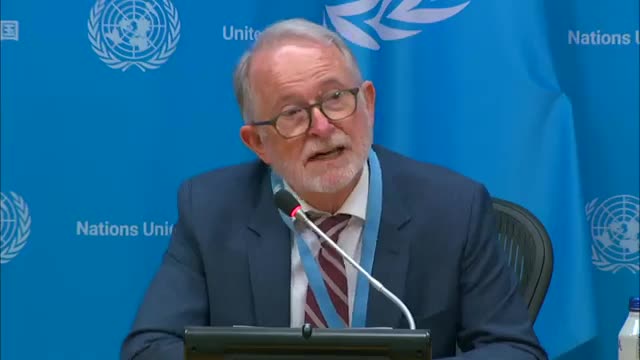Global Call to Action Against Taliban Gender Apartheid
November 02, 2024 | United Nations
This article was created by AI summarizing key points discussed. AI makes mistakes, so for full details and context, please refer to the video of the full meeting. Please report any errors so we can fix them. Report an error »

In a recent government meeting, significant concerns were raised regarding the ongoing human rights violations in Afghanistan under Taliban rule, particularly focusing on the systemic oppression of women and girls. A speaker highlighted that the Taliban's policies amount to gender persecution, often referred to as gender apartheid by Afghan citizens. This situation has persisted for over three years, with women and girls barred from receiving education beyond the sixth grade, making Afghanistan the only country in the world with such restrictions.
The discussion also addressed a new \"vice and virtue\" law that has further entrenched gender-based restrictions, impacting not only women but also men, the LGBTI community, religious minorities, and journalists. This law has been criticized for infringing upon cultural rights, religious freedoms, and freedom of expression, contributing to a broader climate of repression.
An official study mandated by the Human Rights Council is underway, with findings expected to be released in February. The report will examine the shrinking civic space in Afghanistan, where ethnic and religious minorities, particularly the Hazara community, face increasing violence and discrimination amid a severe humanitarian crisis exacerbated by Taliban restrictions and dwindling international aid.
The speaker urged member states to unite in developing a comprehensive, coordinated action plan centered on human rights. Emphasizing the importance of leveraging the women, peace, and security agenda, they noted that the upcoming General Assembly resolution on Afghanistan could serve as a pivotal moment for international response. The current lack of a unified approach has emboldened the Taliban, and the speaker stressed that demonstrable improvements in human rights must precede any normalization of relations with the regime.
The discussion also addressed a new \"vice and virtue\" law that has further entrenched gender-based restrictions, impacting not only women but also men, the LGBTI community, religious minorities, and journalists. This law has been criticized for infringing upon cultural rights, religious freedoms, and freedom of expression, contributing to a broader climate of repression.
An official study mandated by the Human Rights Council is underway, with findings expected to be released in February. The report will examine the shrinking civic space in Afghanistan, where ethnic and religious minorities, particularly the Hazara community, face increasing violence and discrimination amid a severe humanitarian crisis exacerbated by Taliban restrictions and dwindling international aid.
The speaker urged member states to unite in developing a comprehensive, coordinated action plan centered on human rights. Emphasizing the importance of leveraging the women, peace, and security agenda, they noted that the upcoming General Assembly resolution on Afghanistan could serve as a pivotal moment for international response. The current lack of a unified approach has emboldened the Taliban, and the speaker stressed that demonstrable improvements in human rights must precede any normalization of relations with the regime.
Don't Miss a Word: See the Full Meeting!
Go beyond summaries. Unlock every video, transcript, and key insight with a Founder Membership.
✓
Get instant access to full meeting videos
✓
Search and clip any phrase from complete transcripts
✓
Receive AI-powered summaries & custom alerts
✓
Enjoy lifetime, unrestricted access to government data
30-day money-back guarantee
